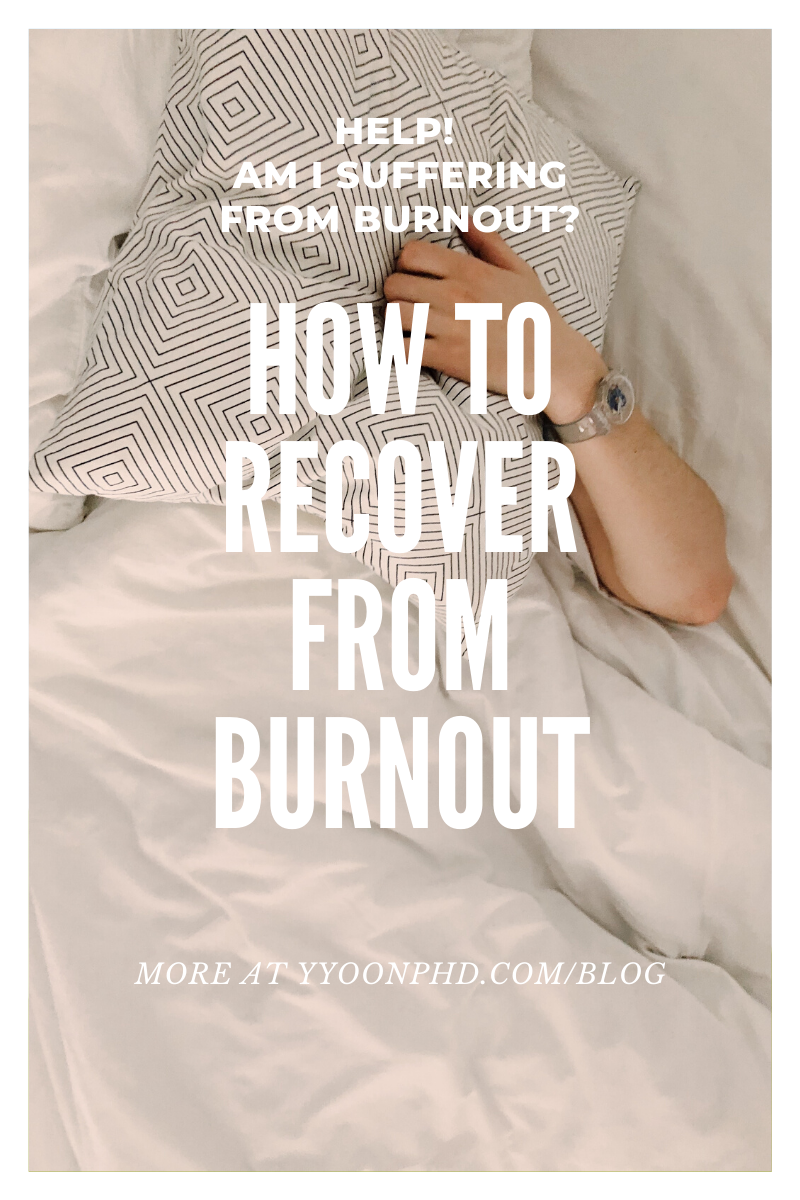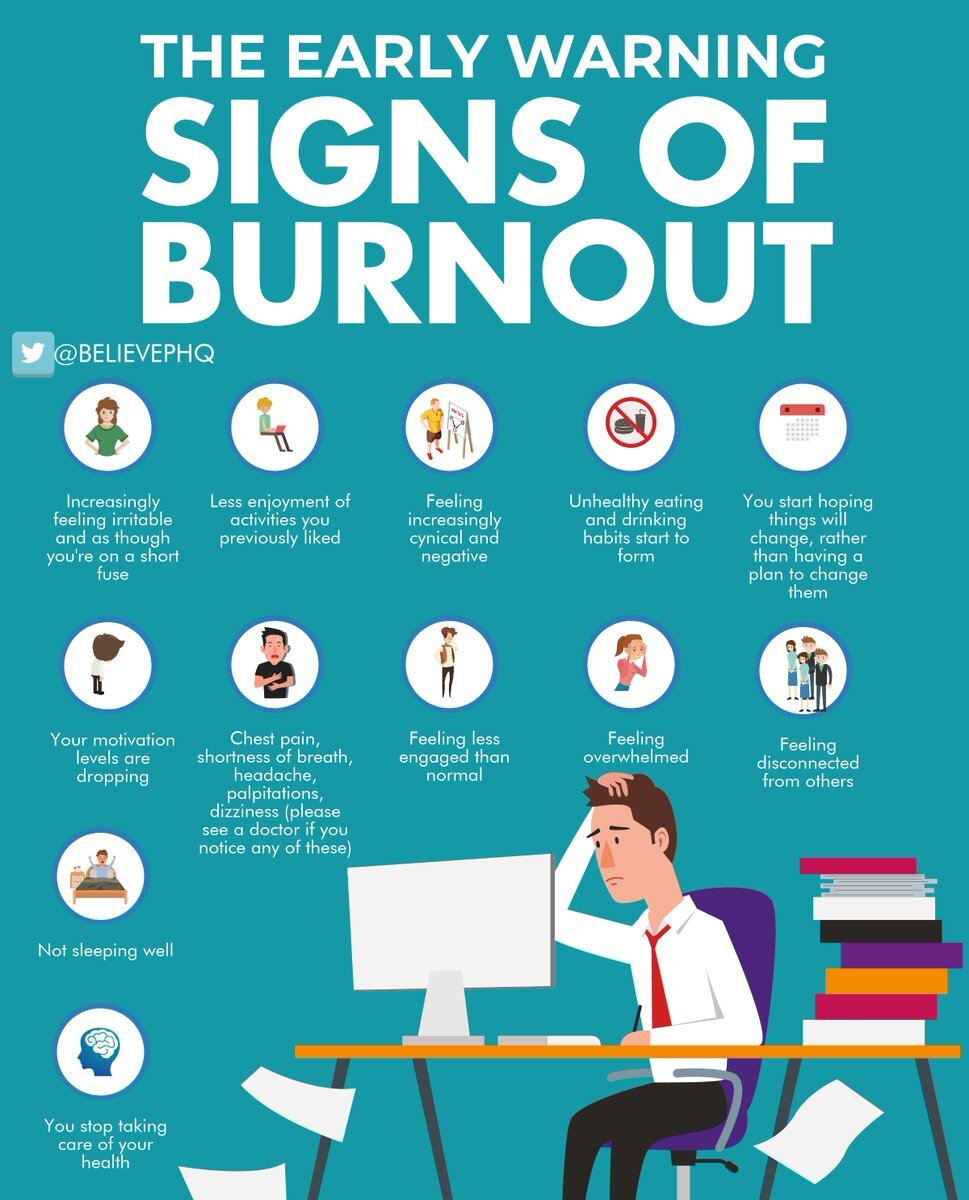Do you go throughout each day feeling like you’re barely getting by?
Do you have trouble focusing and staying motivated to complete things you need to get done?
Have you noticed you’re not feeling like yourself? Perhaps you’re getting more annoyed by people around you - even those you love?
Do you feel like you’re running on fumes?
If you said “yes” to any of these questions, then you may be suffering from burnout.
Burnout is all around us
It’s not uncommon these days to hear people frequently complain of feeling overwhelmed, teetering on the brink of a “break down”, or constantly stressed and anxious. Especially in New York City where I work and other similarly fast-paced environments, the unrelenting on-the-go culture does a number on people’s mental and emotional health. Chronic stress (in other words, constant and ongoing) impacts people’s mood, sleep, concentration, physical health, relationships, and productivity. Needless to say it’s not an enjoyable experience.
Can we do anything about it if we’re basically breeding a culture of chronic stress all around us?
Yes, we can! [channeling my inner Barack Obama]
You can be proactive and take control of your mental, physical and emotional health
Today I’ll share a definition of burn out, what are some signs of burnout, and what to do to recover from burnout. With this knowledge, you can be armed and more prepared to combat the signs of burnout, and to be more mindful or aware of how you’re feeling so you can beat burn out before it beats you.
What is “burnout”?
You can’t talk about burnout without talking about stress. You hear “stress” being used all the time (“I’m so stressed!”), right? But do you actually know what’s going on inside of you when you’re so-called “stressed”? Do you know what it means to feel burnout? How is burnout different from stress?
A little lesson on stress
Stress has a beginning, middle and an end. Think of a story. But like a really unpleasant one.
The beginning: “Alarm”
A stressor is the thing that triggers the start of the stress response. A stressor can be as simple as someone cutting you off in traffic to hearing news that someone you care about is very sick. Whatever event has set this stress response in motion, has now moved you into the “Alarm” stage. Your body and mind say, HEY! Time for go-mode! Mobilize!
It’s important to note that not all stress is bad. We actually want to feel an optimal level of stress which can be motivating and keep us going and moving. If we didn’t feel a little bit of optimal or adaptive stress, we’d probably sit around doing a lot of nothing most of the time. And the world probably wouldn’t run smoothly that way, right?
The middle: “Resistance”
But as the stressor continues to be present, like, you’re continually working long hours to meet a series of deadlines, you’re always thinking about the work that needs to be done in addition to thinking about your other responsibilities that are waiting for you, then your body is going to start feeling it.
We’ve not entered the “resistance” stage. All this stuff is going on inside our bodies that is mobilizing to help us cope with the stress, to keep us going, but this isn’t meant to be a long term solution.
The body is trying to get us back to baseline - back to a normal equilibrium of stress. What typically happens though is we keep pushing past this stage and we ignore the warning signs of this resistance stage. Despite our body’s cues to us to “please slow down! Back up! Can I catch a breather?” we plow into the next stage because we’re not stopping - Exhaustion aka Burnout.
The bad version of the end: “Burnout”
You’ve moved past the point of what your body needed which was the recovery stage. Now your body’s ability to adapt to the stressor is no longer functioning. It’s like your body tapping out of a fight and saying “I’m done.”
This exhaustion or burnout stage can look a lot of different ways which brings me to the next question…
What are signs of burn out? How do you know if you’re suffering from burnout?
What do you do if you’re suffering from burnout?
Step 1a) Notice how you’re feeling
Take a moment: How are you feeling? Emotionally? Physically?
I’ll give you a personal example.
One of the signs I’ve learned to detect as a sign that I’m experiencing burnout is when I am “spinning my wheels”. What that means is that I’m no longer able to do things at the same speed or level of productive output compared to when I’m doing better and more at my optimal self. That’s when I know my body is telling me it’s tired and starting to time out.
Step 1b) Give yourself permission to stop
For you overachievers and perfectionists out there,”slowing down” can feel hard or downright wrong. It’s understandable that you think slowing down will take more work. Typically people I work with tend to get to the place of burnout because they’re hypercritical of themselves and have incredibly high expectations of their performance. So even if they notice that they’re struggling or starting to burnout, they don’t immediately jump at the opportunity to slow down, recover, and actually listen to the inner voice that’s saying “Hey, I’m tired”. And of course this eventually leads to burnout.
So first and foremost: Give yourself permission to slow down and stop.
If it’s hard for you to imagine allowing yourself to slow down, answer this:
What would you say to a friend or to a loved one who was feeling the way you do? Would you tell them to keep going and ignore the signs of burnout? Probably not...so what would suggest to them?
Now turn the tables and practice saying the same thing to yourself.
Step 2) Create a recovery plan
Remember those stages of stress and how I told you that you moved from alarm to resistance to burnout? In fact, there is actually another stage that exists between resistance and burnout.
It’s called recovery or adaptation.
Typically, your body is seeking a recovery phase after it has been working hard to keep your stress response up and running. It’s looking for a break so it can go back to baseline and keep working at an optimal place. But like I said, burnout happens when you steamroll through this recovery stage.
So, here’s what you can do differently: create a recovery plan and implement it.
What does your body or mind need right now?
General tips
Let your body rest: Go to bed earlier, sleep in longer than usual, take a nap, sit a while and get away from your desk or whatever physical task you’ve been doing. Take a day off from work. Ask your partner or someone else to take care of the kids.
Let your mind rest: Walk away from what you’re doing. Shut off devices. Do something mindless.
Delegate and ask for help: If the fact that your to-do list is full and that’s why you’re not able to stop, then practice delegating and move some of those tasks to other people.
Conclusion
Burnout is one shitty end of a stress story that we all go through on a regular basis. The good news is that the stress story doesn’t need to end in burnout. You can end the story in recovery and re-set if you just listen to your body and give yourself permission to slow down and stop. And if you’re already past the place of adapting or recovery, it’s okay. It’s never too late to put one step of your recovery plan into place today.
Like all other things, action is what really counts! You can talk about wanting to slow down and “take care of yourself” till the end of time but if you don’t actually Implement the first step of your recovery plan, then you’ll be on the same track to burn out.
I am guilty of repeatedly going through this cycle of stress and burnout and not listening to my body. I described this cycle to my friend: “I never got off the burnout train. I just got out of one shitty train car and moved to another maybe less shitty one. But I was still on the burnout train.”
It takes time but you can work towards truly getting off the burn out train.
Until next week, leave a comment and tell me:
What is one thing you can do right now to prevent feeling burnout? And if you’re already in the burnout place, what is one thing you will do towards recovery?






